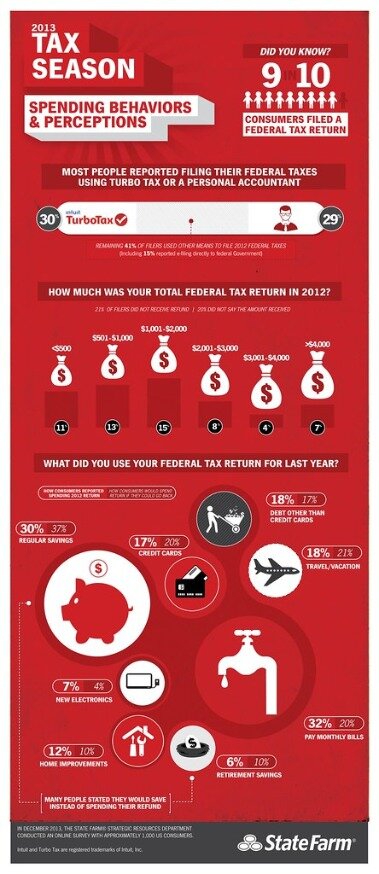Contents:


Managerial accounting may address budgets and forecasts, and so can have a future orientation. Management accounting is solely devoted to serving management decision-making, but its function would be limited and narrower without financial accounting. These reports are only created for internal purposes and not for external stakeholders. Management accounting is much more pervasive in scope since the entire business is moved by a single decision made by the top management.
Accounting v/s finance: Which should you study? – India Today
Accounting v/s finance: Which should you study?.
Posted: Wed, 15 Feb 2023 08:00:00 GMT [source]
While both topics make up the foundational pillars of accounting, there are key differences between the two that you should know. Financial accounting requires that financial statements be issued following the end of an accounting period. Managerial accounting may issue reports much more frequently, since the information it provides is of most relevance if managers can see it right away.
Definition of Financial Accounting
David has helped thousands of clients improve their accounting and financial systems, create budgets, and minimize their taxes. Managerial accounting is useful for companies to track and craft spending budgets, reduce costs, project sales figures, and manage cash flows, among other tasks. Managerial accounting also involves reviewing the trendline for certain expenses and investigating unusual variances or deviations. It is important to review this information regularly because expenses that vary considerably from what is typically expected are commonly questioned during external financial audits. This field of accounting also utilizes previous period information to calculate and project future financial information. This may include the use of historical pricing, sales volumes, geographical locations, customer tendencies, or financial information.
Under the double-entry system, there are two accounts here – cash and capital. Credit the increase of liabilities and incomes and the decrease of assets and expenses. Debit the increase of assets and expenses and the decrease of liabilities and incomes. To understand the difference between finance and accounting, you need to know what each term means.
By dividing the business into smaller sections, a company is able to get into the details and analyze the smallest segments of the business. While managerial accounting puts out profit and loss statements, job costing reports, and operating budgets, financial accounting delivers numbers only for those on the outside who need to determine the company’s market evaluation. Managerial accounting focuses on problems and solutions within an organization while financial accounting is concerned with profitability from without.
Accounting degree
This post explains the difference between financial accounting and management accounting in detail. Accounts receivable is the money owed to a company for a product or service bought on credit. These purchases are listed as entries on a balance sheet and are considered short-term assets to the organizations. A business’ profitability and efficiency are reported through financial accounting.
Top 12 Limitations Of Financial AccountingFinancial accounting limitations are those factors that can have an adverse impact on financial statement users if they rely solely on financial accounts. Limitations include no object classification, labour cost control, and material losses, among other things. Format Of A Trial BalanceTrial Balance has a tabular format that shows details of all ledger’s balances in one place. As every organization must analyze its financial condition over a specific period of time, it contains transactions done during the year as well as the opening and closing balances of ledgers. Management accounting is much broader than financial accounting in helping management since the subject “management accounting” is created to serve the management . The field of finance can be broken down to hone in on the specific types of parties involved, including personal finance, corporate finance, and public finance.
Financial accounting only cares about generating a profit and not the overall system of how the company works. Conversely, managerial accounting looks for bottleneck operations and examines various ways to enhance profits by eliminating bottleneck issues. A Certified Internal Auditor demonstrates creditability into maintaining the control environment within a company by overseeing processes and procedures related to financial accounting. Another example of the accrual method of accounting are expenses that have not yet been paid. Even though the company won’t pay the bill until August, the accrual method of accounting calls for the company to record the transaction in July. In addition to debiting Utility Expense, the company records a credit to accounts payable.
What Is Accounting? The Basics Of Accounting – Forbes Advisor – Forbes
What Is Accounting? The Basics Of Accounting – Forbes Advisor.
Posted: Fri, 20 Jan 2023 08:00:00 GMT [source]
While companies rely on financial accounting for preparing financial statements, companies rely on cost accounting to internally analyze operations and generate internal-only reports. Financial accounting is the set of rules used to compile a company’s financial statements. Alternatively, cost accounting is a range of accounting techniques used to analyze financial performance and drive smarter decision-making. Financial accounting is the basis for externally-shared financial statements; cost accounting is not an allowable basis for financial statements. The balance sheet reports the company’s assets, liabilities, and equity, and the financial statement rolls over from one period to the next. Financial accounting guidance dictates how a company records cash, values assets, and reports debt.
What Is Managerial Accounting?
Managerial accounting is only concerned with the value these items have on a company’s productivity. Financial accounting relies on this accurate data for reporting, while managerial accounting frequently deals with estimates opposed to proven facts. The Certified Management Accountant designation is more demonstrative of an ability to perform internal management functions than financial accounting.
Is to provide information about the results of operations, financial position, and cash flows of an organization. This data is useful to a wide range of users in order to make economic decisions. The purpose of the reporting done by management accountants is more specific to internal users. Management accountants make available the information that could assist companies in increasing their performance and profitability. Unlike financial reports, management reporting centers on components of the business.
Both roles also require a minimum of a bachelor’s degree for entry-level positions. A bachelor’s program can provide professionals with fundamental accounting knowledge and bookkeeping skills that are necessary in either career. Managerial accountants also follow economic trends and make recommendations based on their observations. Additionally, they may be called upon to supervise others linked to a company’s financial strategies, such as bookkeepers.
Inventory turnover analysis
A financial accountant should have excellent analytical skills as their primary duty is to analyze data. They should also have excellent negotiation and communication skills as they will always work closely with other departments. Last, but certainly not least, a financial accountant should also be detail-oriented and able to meet deadlines.
sales journal accountants are also subject to compliance with government rules and regulations, such as the generally accepted accounting principles , whereas managerial accountants are not. When managerial accounting is made for internal consumption there is no set of standards to compile that information. On the other hand, financial accounting must follow various accounting standards. Financial accounting is focused on creating financial statements to be shared internal and external stakeholders and the public. Managerial accounting focuses on operational reporting to be shared within a company. A statement of cash flow reports how a company used cash during a specific period.
What is managerial accounting?
These documents focus on internal company metrics that focus on company performance. Inventory turnover is a calculation of how many times a company has sold and replaced inventory in a given time period. Calculating inventory turnover can help businesses make better decisions on pricing, manufacturing, marketing, and purchasing new inventory.
Cost Accounting: What It Is And When To Use It – Forbes
Cost Accounting: What It Is And When To Use It.
Posted: Thu, 18 Aug 2022 07:00:00 GMT [source]
When a managerial accountant performs cash flow analysis, he will consider the cash inflow or outflow generated as a result of a specific business decision. For example, if a department manager is considering purchasing a company vehicle, he may have the option to either buy the vehicle outright or get a loan. A managerial accountant may run different scenarios by the department manager depicting the cash outlay required to purchase outright upfront versus the cash outlay over time with a loan at various interest rates. Marginal costing (sometimes calledcost-volume-profit analysis) is the impact on the cost of a product by adding one additional unit into production. The contribution margin of a specific product is its impact on the overall profit of the company. Margin analysis flows into break-even analysis, which involves calculating the contribution margin on the sales mix to determine the unit volume at which the business’s gross sales equal total expenses.
Further, it facilitates the comparison of the performance of two periods of an entity or between the two entities. Conversely, management accounting is helpful in analysing the performance so as to make the required strategy or formulate such policies so that organization can succeed. Financial accounting emphasizes on giving true and a fair view of the financial position of the company to various parties. On the contrary, management accounting aims at providing both qualitative and quantitative information to the managers, so as to assist them in decision making and thus maximizing the profit. To get a job in managerial accounting, you’ll need to earn your bachelor’s degree, gain professional experience, and consider certification.
- These purchases are listed as entries on a balance sheet and are considered short-term assets to the organizations.
- While many businesses use a combination of managerial and financial accounting, only the financial statements produced using financial accounting processes are required to be audited by an independent CPA firm.
- Since managerial accounting is not governed by GAAP or other constraints, it is important for the creator of the reports to disclose all assumptions used to make the report.
- These can differ depending on the types of firm or industry and the assessment criteria.
- Managerial accountants create internal operational reports, while financial accountants create financial statements that, although also distributed internally, hold tremendous importance outside the company.
Financial accounting involves sending financial reports, called income statements or balance sheets, to external entities such as lenders, tax professionals, stockholders, and the Internal Revenue Service. The numbers are objective fact, not future projections or past estimates, and they are audited by independent, third-party auditors. The two introductory accounting courses found in most business programs are financial accounting and management accounting.

The Certified Information Systems Auditor exam tests proficiency on maintaining the systems of an entity and may directly or indirectly influence the outcome of the financial accounting process. Performance measures such as return on equity, debt to equity, and return on invested capital help management identify key information about borrowed capital, prior to relaying these statistics to outside sources. It is important for management to review ratios and statistics regularly to be able to appropriately answer questions from its board of directors, investors, and creditors. Earning an advanced degree, such as a Master of Accountancy , can help professionals in either role deepen their knowledge and skills. An advanced degree can lead to more career opportunities, as both fields often require a master’s for managerial and senior positions.
As a managerial accountant, you’ll analyze an organization’s internal financial processes to help company leaders make strategic decisions and plans. In this article, learn about managerial accounting, the different types, the education requirements, and how to enter this career field. The financial statements are typically generated quarterly and annually, although some entities also require monthly statements. Much work is involved in creating the financial statements, and any adjustments to accounts must be made before the statements can be produced. A physical count inventory must be done to adjust the inventory and cost of goods sold accounts, depreciation must be calculated and entered, all prepaid asset accounts must be reviewed for adjustments, and so forth. This audit cannot be completed until after the end of the company’s fiscal year, because the auditors need access to all of the information for the company for that year.

Commenti recenti